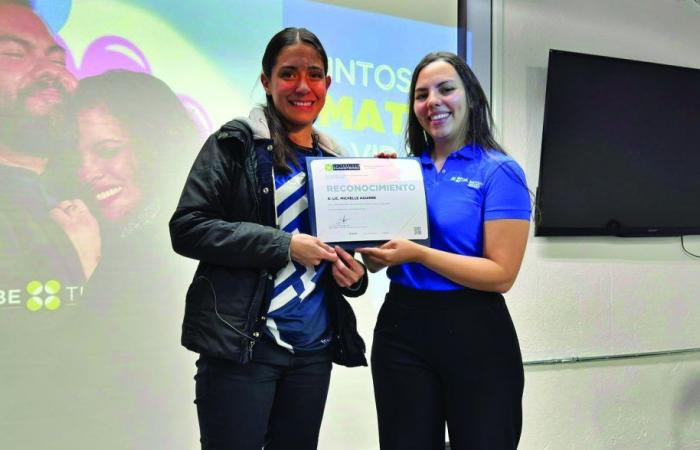After concluding the electoral process in 2024, the work of the Be The Match campaign will be reactivated, which encourages the promotion of stem cell donation and raising awareness about its importance.
Michelle Aguirre, general manager of the Bajío area of the Be The Match campaign, pointed out that, since the campaign started in the capital of Querétaro in February of this year, 556 new potential donors have been registered, of which 154 are women, and 202, men.
“We have been to different universities, we have focused a lot, together with the support of the Municipal DIF, on getting closer to these spaces. Young people are a good focus point for patients, so that these cells that are healthier and younger, help patients much more,” he warned.
Michelle Aguirre indicated that they have visited institutions such as the Autonomous University of Querétaro, the Polytechnic University of Santa Rosa Jáuregui, the Cuauhtémoc University, and the Mondragón University.
In addition, he commented that, within the framework of the Women’s Race, it was possible to find a compatible donor for a patient, so the process of medical studies and completing the operation has already begun. In total, around 10 information events have been held.
The activist indicated that, thanks to this campaign, at the national level, around 286 stem cell donations have been made; and currently, there are 10 patients waiting for their donation. “Out of every 220 people registered, one of them is going to be a match,” she said.
While, in the state of Querétaro, the campaign already has more than 4,400 potential registered donors; There is currently no patient on the donation waiting list.
He specified that one of the more than 75 diseases that can be treated or cured in this way, the one that predominates in the campaign donations is leukemia and childhood cancer. “What we do is that we maintain a national database, where our job is to feed this base with altruistic donors, who do not necessarily have any family relationship with the patients or the people who are waiting for their donation; but they are people who want to help and donate. Here, the most difficult thing is to find a genetic match,” he stressed.
Comments
Comments


